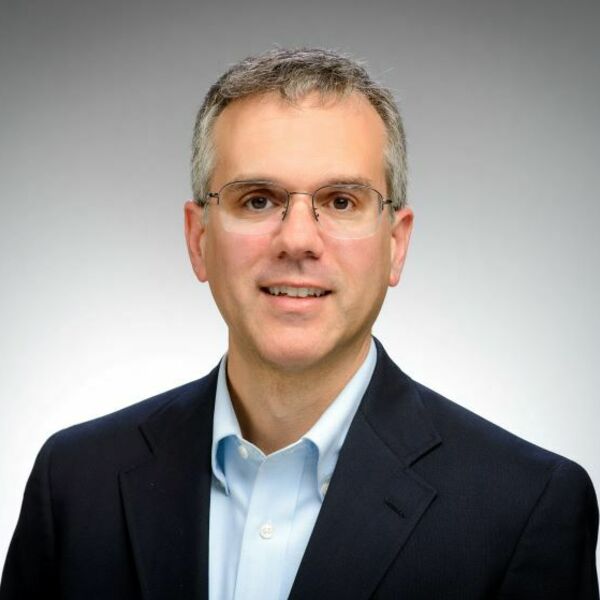Mark Caprio
Professor, Department of Physics & Astronomy
Research Interests
Prof. Caprio’s research emphasis is on nuclear structure theory, including the collective structure of nuclei, ab initio computational methods, and the nature of phase transitions in quantum many-body systems. He is interested in fundamental problems in the many-body physics of nuclei and other mesoscopic systems, especially the microscopic origins of collective phenomena.
A major outstanding problem in nuclear theory lies in developing the full connection between single-particle and collective degrees of freedom. Fully “microscopic” theories, which treat the nucleus explicitly as a system of nucleons (protons and neutrons), in principle promise to relate nuclear properties directly to the underlying nucleon-nucleon interactions. However, these theories face tremendous computational challenges in properly reproducing collective properties, such as alpha-particle clusters in light nuclei or deformation and surface vibrations in heavier nuclei. At the microscopic level, Prof. Caprio is using Lie algebraic methods to isolate the relevant collective degrees of freedom, with the goal of making the calculation of collective properties a more tractable problem. Prof. Caprio also works extensively with macroscopic models, such as the interacting boson model and geometric model, in which collective features arise through symmetry properties. These descriptions are especially valuable for the phenomenological treatment of nuclear properties of current experimental interest, such as transitions between spherical, deformed, and axially-asymmetric nuclear shapes.
Honors and Activities
Activities
Associate Editor, European Physical Journal A: Hadrons and Nuclei
Awards
2023 James A. Burns, C.S.C., Award, Graduate School, University of Notre Dame
2017 Shilts/Leonard Teaching Award, College of Science, University of Notre Dame
2014 Edmund P. Joyce, C.S.C., Award for Excellence in Undergraduate Teaching, University of Notre Dame
2014 Faculty Fellow, Kaneb Center for Teaching and Learning, University of Notre Dame
2010 Cottrell Scholar Award, Research Corporation for Science Advancement
Education
B.S., (Physics & Mathematics) Oglethorpe University, 1994
M.S., (Physics) Yale University, 1999
M. Phil., (Physics) ibid, 1999
Ph.D., (Physics) ibid, 2003
Publications
"Robust ab initio prediction of nuclear electric quadrupole observables by scaling to the charge radius", M. A. Caprio, P. J. Fasano, and P. Maris, Phys. Rev. C 105, L061302 (2022).
"Natural orbitals for the ab initio no-core configuration interaction approach", P. J. Fasano, Ch. Constantinou, M. A. Caprio, P. Maris, and J. P. Vary, Phys. Rev. C 105, 054301 (2022).
"Intrinsic operators for the translationally-invariant many-body problem", M. A. Caprio, A. E. McCoy, and P. J. Fasano, Guide, J. Phys. G 47, 122001 (2020).
"Emergent Sp(3,R) dynamical symmetry in the nuclear many-body system from an ab initio description", A. E. McCoy, M. A. Caprio, T. Dytrych, and P. J. Fasano, Phys. Rev. Lett. 125, 102505 (2020).
"Probing ab initio emergence of nuclear rotation", M. A. Caprio, P. J. Fasano, P. Maris, A. E. McCoy, and J. P. Vary, Eur. Phys. J. A 56, 120 (2020). [Featured in an EPJA Highlight]
"The many-nucleon theory of nuclear collective structure and its macroscopic limits: An algebraic perspective", D. J. Rowe, A. E. McCoy, and M. A. Caprio, Physica Scripta 91, 033003 (2016).
"Generalized seniority with realistic interactions in open-shell nuclei," M. A. Caprio, F. Q. Luo, K. Cai, Ch. Constantinou, and V. Hellemans, J. Phys. G 39, 105108 (2012).
“Bohr model as an algebraic collective model,” D.J. Rowe, T.A. Welsh, and M.A. Caprio, Phys. Rev. C 79, 054304 (2009). [Synopsis in Physics: Spotlighting Exceptional Research]
“Excited state quantum phase transitions in many-body systems,” M.A. Caprio, P. Cejnar, and F. Iachello, Ann. Phys. (N.Y.) 323, 1106-1135 (2008).
